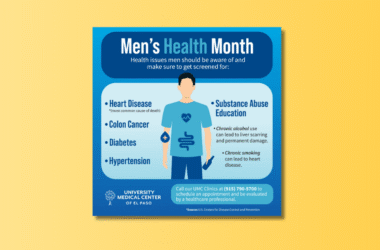Every October, we observe Health Literacy Month, a perfect time to highlight the importance of making health information accessible and understandable for everyone. Being able to navigate the healthcare system and make informed decisions is a powerful form of prevention and self-care.
What is Health Literacy?
According to the World Health Organization (WHO), health literacy, is defined as the ability to access, understand, appraise, and use health-related information in order to promote and maintain good health and well-being. The U.S. Centers for Disease Control and Prevention (CDC) details two branches in health literacy:
- Personal health literacy refers to an individual’s ability to search, understand, and use health information, to make decisions, and take actions on their well-being.
- Organizational health literacy reflects how well organizations present health information and services so that people can easily access, understand, and us them.
It goes beyond reading pamphlets or filling out forms. It’s about empowering individuals make well-informed health choices and ensuring that organizations provide clear, helpful, and culturally appropriate information.
Why It Matters
Health literacy affects every aspect of our well-being. It influences how we:
- Understand health information
- Make healthy choices
- Navigate the healthcare system
- Know when and how to seek medical care
It’s important to note that is not just the responsibility of individuals. As the WHO emphasizes, it is shaped by many societal factors. Governments, civil society, and health organizations all share responsibility for making information accessible, accurate, and easy to understand.
At University Medical Center of El Paso, we believe that improving health literacy strengthens people’s ability to take control of their health and helps build a healthier community.
Quick Tips for Better Health Communication:
- Not everything you see online is true. When in doubt, talk to a trusted healthcare professional.
- Prepare for your appointments. Writing down your concerns and questions ahead of time can help.
- Speak up! If you don’t understand something, ask your doctor or nurse to “say it simply.”
- Stay proactive. Monitoring your health regularly is key to preventing and managing risks.
It is important to monitor your health regularly to prevent, detect, and manage potential risks. At University Medical Center of El Paso (UMC), our health professionals are here to support your overall well-being. Call (915) 521-7979 today to schedule an appointment, or visit www.umcelpaso.org to learn more.










